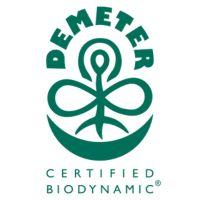Consumers are increasingly environmentally aware, seeking sustainable products in their day-to-day, and their wine-buying habits are no exception. Wineries are following suit, with eco-friendly winemaking becoming commonplace. Some wineries in the United States have been ‘going green’ for decades. Others, realizing the positive impact on the earth (and taking advantage of buying trends), are just beginning to dip their toes into switching to lightweight glass bottles or reusing treated wastewater.
However, for the number of sustainable winemaking efforts a winery can adopt, it seems there’s an equal number of certifications to pursue. With so many different global, national, and regional certifications available, it can be challenging to comprehend the various claims made by wineries.
Consumers are unlikely to pull out their phones while shopping for wine to research a winery’s sustainability efforts. Hence, a certification logo directly on the bottle is pertinent to any winery’s overall marketing.
Here, we break down the nuances between various organic, eco-friendly, and sustainable wine certifications across the United States and what they represent in your glass.
National Certifications
Organic

One of the most widely recognized sustainability certifications is the USDA Organic certification. This certification ensures that the grapes used in wine production are grown without the use of synthetic pesticides and fertilizers, and the wine must also be made without the addition of any synthetic preservatives. In addition, the certification requires that the winery follow strict guidelines for soil health and biodiversity.
A wine labeled “made with organic grapes” is a separate USDA certification where viticulture practices mirror certified organic wines. However, they have fewer restrictions in the winery, with the ability to use non-organic yeast or added sulfites.
Demeter

Demeter is a worldwide certification encompassing some of the most stringent and comprehensive biodynamic farming practices. Biodynamic farming is a holistic approach to agriculture that views the farm as a self-contained ecosystem and seeks to create a balance between the soil, plants, animals, and humans. This approach involves using organic farming methods while also considering the moon’s and planets’ cycles and incorporating various preparations made from natural materials.
In winemaking, the Demeter certification requires that the grapes are grown using biodynamic methods, and the wine is made using only natural yeasts and without any additives or manipulation. Biodynamic winemaking also involves following lunar and planetary cycles for planting, harvesting, and bottling the wine.
In this clip from An Intro to Biodynamic Farming, streaming exclusively on SOMM TV, Jonah Beer, Dustin Wilson, and Gianni Ottone explain some of the biodynamic fundamentals founded by scientist and philosopher Rudolf Steiner.
SIP Certified

SIP (Sustainable in Practice) Certified began in 2008, specific to California’s Central Coast, expanded state-wide, and now reaches other parts of the U.S., including Michigan. (Because of this, we include it under the national certifications.)
SIP wines are often organic and/or biodynamic; however, certification focuses on planet-friendly principles like renewable energy sources, minimizing water waste, and offering employees ethical wages and medical insurance.
The program provides options, allowing the vineyard, winery, or wine to be certified separately. This approach lets consumers easily identify wines produced using sustainable practices from vine to bottle.
Regional Sustainable Wine Certifications
While national certifications can be beneficial from a commercial standpoint — allowing consumer recognition across the country — some wineries prefer to address sustainability issues specific to their area. Grape growing and winemaking differs from micro-climate to micro-climate, so some regions have developed their own standards specific to the challenges they face.
CALIFORNIA
Certified California Sustainable Winegrowing (CCSW)

Certified California Sustainable Winegrowing (CCSW) is a program developed by the California Sustainable Winegrowing Alliance (CSWA). It provides a comprehensive framework for vineyards and wineries to assess and improve sustainability practices.
Currently, 2,584 vineyards and 178 wineries in California participate in the CCSW program. It’s one of the world’s most extensive sustainable wine-growing programs, covering practices in the vineyard and winery, on the property, and social responsibility. Key areas include:
- water efficiency
- energy efficiency
- pest management
- soil health
- waste management
- wildlife habitat
- neighbors & communmity
- employees
- contributions
- supply chain
Napa Green

Napa Green was developed by the Napa Valley Vintners (NVV) in collaboration with the Napa County Farm Bureau. The program promotes environmental stewardship and sustainable practices in California’s most famous wine region.
There are two branches of the Napa Green program. Napa Green Vineyard certification focuses on farming practices, including soil health, water conservation, and ecosystem management. Napa Green Winery certification focuses on winery practices, including energy efficiency, water conservation, and waste reduction. Both certification programs require a commitment to continuous improvement.
Over 100 vineyards and wineries in the Napa Valley region are certified Napa Green, with another 44 in transition.
Lodi Rules

LODI RULES is an evolution, beginning as a farmer education program in the early 90s to becoming one of the first regional sustainability certifications in 2005. Home to one-fifth of California’s vineyards, the program certifies more than 70,000 acres of vines.
The LODI RULES certification requires that vineyards follow over 150 best practices in ecosystem management, water management, soil management, pest management, business management, and human resources.
NEW YORK
VineBalance


New York Sustainable Winegrowing and Long Island Sustainable Winegrowing have adopted The New York Wine & Grape Foundation (NYWGF) pilot certification program, VineBalance.
The program evaluates growers against 144 action items addressing input reduction, soil health, water protection, resources and waste, energy conservation, ecosystem health, climate resiliency, continuous improvement, and social equity.
In early 2022, 35 (of 40 that attempted) passed the VineBalance 2022 workbook and inspection, making them eligible for certification in 2023. Each action item was measured on a scale from 1 (least sustainable) to 4 (most sustainable). Growers had to earn an average score of 3 to pass the workbook.
PACIFIC NORTHWEST
Low Input Viticulture and Enology (LIVE) Certified

LIVE has been certifying vineyards in Oregon since 1999, Washington since 2006, and Idaho since 2012. It certifies more than 27,000 acres across 320 vineyards and 37 wineries with sustainable requirements specific to the growing climate of the Pacific Northwest.
There are two certification options through LIVE. A wine carrying the LIVE Certified Sustainable Grapes logo must include 97% certified grapes, with a reporting focus on plant nutrition and fertilizer use, animal density and welfare, among other things. A wine carrying the LIVE Certified Sustainable Wine logo must also come from 97% certified grapes and be made in a certified winery where reporting focuses on energy use, water management, and worker health.
Other Eco-Friendly Wine Certifications
Salmon Safe

Salmon-Safe certification is one of the leading certifications that protects water quality and the habitats of salmon and other aquatic species in the Pacific Northwest. While the program doesn’t explicitly focus on wine, many vineyards in Oregon, Washington, and British Columbia embrace it.
The Salmon-Safe program evaluates based on rigorous standards for environmental stewardship. The program covers a range of sustainability practices, including reducing pesticide and fertilizer use, protecting soil health, and conserving water resources. In addition, the program evaluates vineyards for their impact on nearby streams and other waterways and provides guidelines and resources for protecting these important habitats.
Leadership in Energy and Environmental Design (LEED)

LEED is a unique certification focusing on the environmental impact of a winery’s design, construction, and building operations. The U.S. Green Building Council (USGBC) developed the program, which recognizes things like geothermal heating and cooling, water conservation, and construction using recycled materials.
LEED certification is available at four levels, based on a points system across various categories: Certified, Silver, Gold, and Platinum.

B Corporation

B Corp Certification is a comprehensive program that measures a company’s entire social and environmental impact. It’s globally recognized across all industries, committing businesses to be accountable, transparent, and meet high performance standards.
To achieve certification, a company must score at least 80 points in the B Impact Assessment, measuring social and environmental performance. It must also change its corporate governance structure to be accountable to all stakeholders, not just shareholders. Finally, it must allow its score to be publicly available on its B Corp profile on B Lab’s website.
Certification considers the company size, while the fee is proportional to the company’s profits. Companies undergo recertification every three years; they must obtain a higher score than they previously held, leading to continuous improvement and long-term resiliency.









